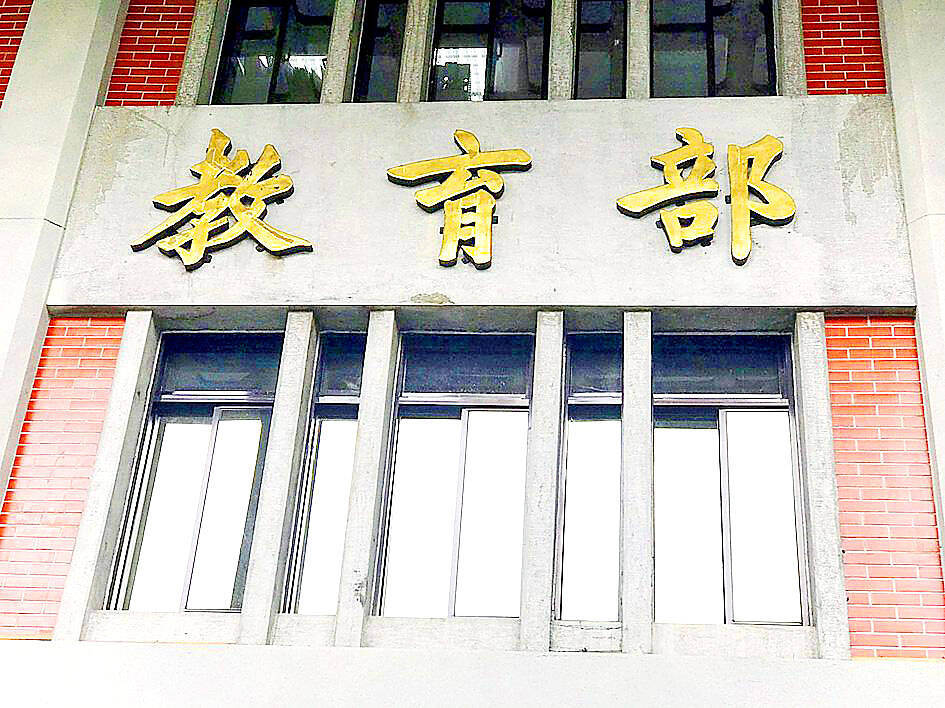A citizen-initiated petition to delay junior-high and high-school class starting times to 10am has gained more than 10,000 signatures in less than a week, prompting the Ministry of Education yesterday to announce that it would review the proposal and reply within two months.
Most junior-high and high-school students begin classes at about 8am. The petition — submitted on Tuesday last week on the National Development Council’s public policy participation Web site — calls for classes to run from 10am to 4pm and for nonessential courses to be cut to give students more sleep and improve learning efficiency.
It says that students can already commute on their own and do not need to match parents’ work schedules, while shorter hours would allow more time for hobbies and social activities.

Photo: Rachel Lin, Taipei Times
The petition said that chronic sleep deprivation can lower learning efficiency, and increase the risk of depression, self-harm and suicide.
However, opponents argue that shorter hours might simply lead to students spending more time in private cram schools and fail to address the issue of lack a sleep.
The ministry yesterday said that the petition would be handled according to the Directions for Implementing Online Participation in Public Policy, and its formal response would be issued by Nov. 14.
Research has shown that the biological clock of junior-high and high-school students lends itself to getting up after 8am, Tri-Service General Hospital psychiatrist Yeh Chih-pin (葉啟斌) said.
Each age group has different standard bedtimes, with lower-grade students needing to go to bed at about 9pm, Yeh said, adding that this bedtime is moved back by about an hour each year.
However, sleep needs to vary from person to person, he said.
Some people feel energized with just four to five hours of sleep, while others need about seven to eight hours, Yeh said.
In addition, 10 to 20 percent of people are naturally late sleepers and late risers, making them most energetic and efficient later in the day, he said.
This makes it difficult to set a schedule that is suitable for everyone, he added.
Maintaining flexibility and choice is good, just as other fields embrace people with diverse traits, he said, adding that corresponding support measures are necessary.
Yeh said that in some environments, students’ interest in learning declines because teaching is mostly lecture-based with little hands-on practice.
As a result, they are drowsy during the day and fall asleep later at night, which alters their biological clock over time, Yeh said.
This is different from innate traits that make people night owls, which requires understanding and intervention to improve, he said.

The Ministry of the Interior (MOI) is to tighten rules for candidates running for public office, requiring them to declare that they do not hold a Chinese household registration or passport, and that they possess no other foreign citizenship. The requirement was set out in a draft amendment to the Enforcement Rules of the Public Officials Election and Recall Act (公職人員選舉罷免法 ) released by the ministry on Thursday. Under the proposal, candidates would need to make the declaration when submitting their registration forms, which would be published in the official election bulletin. The move follows the removal of several elected officials who were

The Republic of China (ROC) is celebrating its 114th Double Ten National Day today, featuring military parades and a variety of performances and speeches in front of the Presidential Office in Taipei. The Taiwan Taiko Association opened the celebrations with a 100-drummer performance, including young percussionists. As per tradition, an air force Mirage 2000 fighter jet flew over the Presidential Office as a part of the performance. The Honor Guards of the ROC and its marching band also heralded in a military parade. Students from Taichung's Shin Min High School then followed with a colorful performance using floral imagery to represent Taiwan's alternate name

COVETED PRIZE: The US president would be a peace prize laureate should he persuade Xi Jinping to abandon military aggression against Taiwan, William Lai said US President Donald Trump should get the Nobel Peace Prize should he be able to convince Chinese President Xi Jinping (習近平) to abandon the use of force against Taiwan, President William Lai (賴清德) told a conservative US radio show and podcast in an interview. The US is Taiwan’s most important international backer, despite the absence of formal ties, but since Trump took office earlier this year he has not announced any new arms sales to the nation. Trump could meet Xi at the APEC summit in South Korea on Oct. 31 and Nov. 1. Lai, speaking on The Clay Travis and Buck Sexton

A Chinese takeover of Taiwan would severely threaten the national security of the US, Japan, the Philippines and other nations, while global economic losses could reach US$10 trillion, National Security Council Deputy Secretary-General Lin Fei-fan (林飛帆) wrote in an article published yesterday in Foreign Affairs. “The future of Taiwan is not merely a regional concern; it is a test of whether the international order can withstand the pressure of authoritarian expansionism,” Lin wrote in the article titled “Taiwan’s Plan for Peace Through Strength — How Investments in Resilience Can Deter Beijing.” Chinese President Xi Jinping’s (習近平) intent to take Taiwan by force